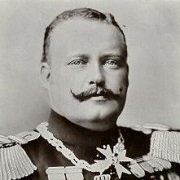|
The LDP got a lot of help from the CIA in the early years and essentially led Japan from the ruins of the postwar Showa period to the stable,
|
|
|
|

|
| # ? May 13, 2024 16:02 |
|
punk rebel ecks posted:It is weird to me how Japan is a democracy then. It seems that LDP has ruled Japan forever, sans one term, yet the country has free and fair elections. Why don't people elect a different party once in a while like everywhere else?
|
|
|
|
Didn't a different party reign for one terms some years ago? What happened?
|
|
|
|
punk rebel ecks posted:Didn't a different party reign for one terms some years ago? What happened? LDP split led to the splitters forming a temporary coalition with an opposition party. They reunified shortly afterwards.
|
|
|
|
Where is the Bernie Sanders of Japan?
|
|
|
|
That's bunny thunders
|
|
|
|
punk rebel ecks posted:Didn't a different party reign for one terms some years ago? What happened? The DPJ was created in 1998 by putting the voting base of the Socialist Party, the opposition party from 1945 until the 1990s, and some of its old MPs under leadership mostly of people who split off of the LDP, running on a neoliberal-deregulatory platform that was already obsolete by the time it won power in 2009. Once it won power it disastrously bungled its foreign policy by casually trying to force US bases out of Okinawa and realigning towards China, which the US was not happy with and China not interested in either, and China then almost started a war over Diaoyu. Then it disastrously bungled the Fukushima disaster which was mostly caused by government bureaucracy it hadn't built or been responsible for. It generally ate the blame for the financial crisis and bad economy despite that not being their fault either. The government collapsed 3 years into a 4 year term and then you got Abe who's been in power until now. The DPJ limped along until 2017 when it split into left and right wings right before the general election. The right wing, now the "Democratic Party for the People" (DPFP) has been a disaster more or less, it has some MPs but is polling at like 1%. The left wing, the "Constitutional Democratic Party" (CDP) is polling OK, no better than the DPJ between 2012-2017 but with room for improvement hopefully Really the DPJ was "supposed" to win power in the early 2000s but Koizumi snatched it away and the DPJ came into office too late and at a really bad time Hard to say whether the CDP will be able to win power, we'll find out in a few years once Abe leaves office. The LDP doesn't really have much in the way of leadership to replace Abe with, although it's in better shape than it was 20 years ago punk rebel ecks posted:Where is the Bernie Sanders of Japan? Bernie, Corbyn, Melenchon, Oskar Lafontaine in Germany, etc, all were people who started politics on the left wing of their respective social-democratic parties in the 70s, who were then sidelined in the 90s when those parties shifted to the right, and are now back for their revenge. The Socialist Party, disintegrated so thoroughly that there's not really anyone who fits that description in Japan. The leader of the CDP is somewhat charismatic but he didn't come from the JSP and wasn't even on the left wing of the DPJ at first, and I think his starting the CDP has mostly been a pragmatic power play to lead and control his own party without any major rivals for leadership unlike the DPJ which was stuffed with people backstabbing each other constantly, with nostalgic social-democratic flavoring as a branding strategy I've posted here before but there's almost literally nothing written about the Socialist Party so it's hard to actually say anything about it. What I've cobbled together is that it became "captured" in a sense by public sector labor unions and was basically no more than the parliamentary representation of those unions, which effectively don't exist anymore. It actively resisted reaching out out a more mainstream, middle class mass electorate and had a highly doctrinaire, ultra-left Marxist ideological position and so got like 20% of the vote. From what I've read it had even a sort of tacit coalition relationship with the LDP, where it had influence over government policy and important links to the bureaucracy and public sector, which would potentially have been threatened if it pursued a more active electoral strategy. Part of why there's no Bernie Sanders or Corbyn of Japan is that the JSP MPs were not actually selected based on mass public political appeal but were just union functionaries apparantly I think the reason it's not talked about is because people want to portray the LDP's electoral dominance as being the result of nefarious treachery and game-rigging, but that doesn't really seem to be the case. At the least the JSP's not really even contesting power was at least as important a factor as LDP game-rigging. Game-rigging was and is a thing, but like for example these papers show that the famous malapportionment and gerrymandering that is always mentioned, even at its height in the 1970s, was literally only 1/3 as bad as the current malapportionment of the US Senate, and the Democrats are still competitive there, though disadvantaged https://ideas.repec.org/a/cup/bjposi/v31y2001i04p651-671_00.html https://www.jstor.org/stable/3186126?seq=1#metadata_info_tab_contents If you take the difference between the share of the legislature seats and the share of the population, say 10% of the seats for only 5% of the voting population, add that up across all seats, you get a number that measures the amount of malapportionment. That number was about 13% for Japan in the 70s, is 8% today (or at least in the early 2000s, it may have gotten worse again) for the district seats, and is 5% if you account for the proportional seats. 5% is about where most other first world countries are. The US Senate by contrast is 36% icantfindaname fucked around with this message at 19:22 on Mar 6, 2019 |
|
|
|
Wow the USA sucks.
|
|
|
|
punk rebel ecks posted:Wow the USA sucks. It’s true
|
|
|
|
That's just science.
|
|
|
|
I can think of two reasons why Japanese people are largely apolitical. One is the relative absence of politics from broadcast media. Politicians can't run election ads and newspapers/television are very constrained, either willingly or otherwise. So there isn't really a venue to bring political issues into the national consciousness usually. Some big exceptions to that have been the anti-nuclear sentiment after Fukushima, the base in Okinawa and the media focus on recent deaths of children due to abuse from their parents. It's worth noting that those have been exceptions because the government has acknowledged them as issues, not that they've done much about them. The second reason is, when I've asked Japanese people why they don't care about politics one fairly common response has boiled down to, "Why should I?" And it's not a bad point. Japan is, by and large, pretty well run. Japanese politicians have their share of grifters sure, but it's nothing like the rapaciousness of US politicians. Public money largely goes to things that make people's lives more livable like health care, public transportation, infrastructure, child care and education. The country has been pretty egalitarian with regard to wealth distribution and employment security, although that's taken a bad swing lately and will be the source of increased political activity if it isn't rectified. I guess if I had to describe the MO of the ruling elites of Japan it's keep things running well enough for everyone that people aren't taking to the streets so I can skim enough off the top to afford Ginza hostesses and a Mercedes. I literally couldn't be more ignorant about Japanese politics if I tried, but those are a couple of things I've gleaned from living here for a while.
|
|
|
|
Another factor which I think is actually very large is the relative lack of activism, awareness, and education around politics in education in Japan, especially in post-secondary education. In really most places in the world, young people become most politically active in their university years; it's often something they're in some way actively studying, they often have more flexible schedules which allows for more actual hands on activism, in many places it's encouraged to get involved in various groups (NGOs etc.) for career development and experience, they're usually coming of age where they get their voting right, etc. In most democratic countries (and even in many undemocratic countries) it's an important aspect of political activity. For all that it's en-vogue right now to mock uni students in the US for their activism (which isn't always undeserved), throughout modern history university students have been a very important part of political change. In Japan in the last several decades that's almost completely absent, and frequently openly discouraged by university administrations. So Japanese kids never really have a period of political awareness or activism, and then once they're done with uni they're too busy with their bullshit work and then raising families to care for that much beyond what's right in front of their face.
|
|
|
|
LimburgLimbo posted:Another factor which I think is actually very large is the relative lack of activism, awareness, and education around politics in education in Japan, especially in post-secondary education. In really most places in the world, young people become most politically active in their university years; it's often something they're in some way actively studying, they often have more flexible schedules which allows for more actual hands on activism, in many places it's encouraged to get involved in various groups (NGOs etc.) for career development and experience, they're usually coming of age where they get their voting right, etc. In most democratic countries (and even in many undemocratic countries) it's an important aspect of political activity. For all that it's en-vogue right now to mock uni students in the US for their activism (which isn't always undeserved), throughout modern history university students have been a very important part of political change. Don’t Japanese college students like, never have to do any actual work except for like two exams? Hard to get more flexible than that. Edit: to be clear, I’m just going by what a Lutheran missionary once told me. I could be wrong.
|
|
|
|
Yeah it's a four year holiday between the endless study needed to pass your entrance exam and the rest of your soul-crushing life as a salaryman. The quality of undergraduate education here is hilariously bad. It's more flexible in that you have a shitload of free time, but most students join non-political clubs. The only thing close to political groups I've seen in my university are a Marxist club and various volunteer groups for things like refugee welfare, and it's one of the supposedly more liberal universities. Charles 2 of Spain fucked around with this message at 06:03 on Mar 7, 2019 |
|
|
|
Ogmius815 posted:Don’t Japanese college students like, never have to do any actual work except for like two exams? Hard to get more flexible than that. It's a bit of a mixed bag, but yeah the quality and culture of undergrad education is not good overall. There's no academic probation and traditionally grades literally don't matter for searching for jobs. People don't really seriously study by and large and grades are usually structured in such a way that all that matters is ekeing by on a final test for each class more or less. There are however what are called "zemi" (Japanese shortening of Seminar) where you work more closely with a teacher in a group over a year or more on some projects related to your education, and there's a lot more actual work and education going on there. Basically, academically speaking there is actual work going on by a lot of students at Japanese uni's, and it's not like literally everyone does nothing. BUT, the bare minimum needed to do to get by is *really really* little, because you won't get in trouble for low grades, you won't get kicked out, and as long as you pass enough credits you won't graduate late. The graduation rate for most Japanese universities is something like 95% whereas in the US it's 59% over 6 years as per the numbers a quick google finds. Any time you have a graduation rate that high it's bad, because it means that you're not effectively testing and filtering for your best students (though arguable the Japanese system tries to do the filtering at the initial stage for high level universities, by only taking students with very high scores on entrance exams). Also culturally it's very hard for professors to outright fail students even if they're really bad. This also tends to destroy the education culture of many unis because the students know the professors have very little leverage over them. This is generally for more liberal arts and humanities programs however; hard sciences etc. are supposedly a bit better, but I have less experience. On the other hand a lot of Japanese students are very heavily involved in activities besides classes, be it athletics or clubs, which are often very very involved (as in many of them 3-4 hours of time or more every day); this experience is often highly valued by Japanese employers. Essentially the post-secondary education system is a reflection of the traditional labor practices in Japan, which emphasize everyone being a generalist and an effective member of the group, rather than necessarily valuing deep expertise. Students don't often don't study deeply their major subject because it frankly doesn't have much impact their future work (this is arguably true in a lot of places where an undergrad education is a prerequisite and doesn't necessarily require educational background to match, but probably to a greater extent in Japan), and moreover it's not even looked at closely when job hunting, which in Japan is a very structured and organized process.
|
|
|
|
LimburgLimbo posted:)Also culturally it's very hard for professors to outright fail students even if they're really bad. This also tends to destroy the education culture of many unis because the students know the professors have very little leverage over them. This is the case for primary schools as well as it is basically unheard of to be held back a grade. You're probably not going to get into a good high school or university that way, but failing otherwise is impossible and you'll always get put in the "appropriate" class for your age.
|
|
|
|
I wonder if the few Japanese political activists look at the U.S. political scene with envy?
|
|
|
|
No first world country looks at the US with envy about anything except for maybe our parks and nature and we’re currently in the process of destroying or selling those for a quick buck.
|
|
|
|
If Japanese schooling is so lax, then why do they perform so well in education compared to their Western counterparts?
|
|
|
|
Because the people who provide those numbers lie like loving rugs.
|
|
|
|
punk rebel ecks posted:If Japanese schooling is so lax, then why do they perform so well in education compared to their Western counterparts? Schooling as a whole isn’t lax, postsecondary is lax. Up through high school it’s quite rigorous, and also generally very explicitly oriented towards passing tests, so surprise surprise kids do well at tests.
|
|
|
|
punk rebel ecks posted:I wonder if the few Japanese political activists look at the U.S. political scene with envy? Apparently some form of Japanese conservatives had a booth at CPAC, which is hilarious to think of. I don’t think anybody with a functional soul looks at the US political scene with any kind of envy.
|
|
|
|
harperdc posted:Apparently some form of Japanese conservatives had a booth at CPAC, which is hilarious to think of. Yeah, I loled at that part of Chapo.
|
|
|
|
Didn't Japan dabble with Ultra extremists and Communists duing the 60's? Weren't those folks university kids?LimburgLimbo posted:No first world country looks at the US with envy about anything except for maybe our parks and nature and we’re currently in the process of destroying or selling those for a quick buck. I agree
|
|
|
caberham posted:Didn't Japan dabble with Ultra extremists and Communists duing the 60's? Weren't those folks university kids? They had some crazy protests in the 60s.
|
|
|
|
|
And like American hippies, those student protestors went onto become salarymen
|
|
|
|
caberham posted:Didn't Japan dabble with Ultra extremists and Communists duing the 60's? Weren't those folks university kids? Lurking Haro posted:They had some crazy protests in the 60s. shrike82 posted:And like American hippies, those student protestors went onto become salarymen Yeah that's why I specified in the last few decades. Back in the 60s and 70s you had kids that grew up in the devastation and poverty of immediate postwar Japan and much more intimately understood how politics can impact their lives, and as a result were much more active politically (I'm handwaving a lot here but that's my general hypothesis). However arguably Japanese education being very apolitical in the last three or four decades is likely in many ways a response to the relative extremism of those years.
|
|
|
|
Here's some kickin' rad poo poo about 60's protests against Narita airport where protesters used advanced tactics to straight up beat the police in close combat. https://www.youtube.com/watch?v=eXjd7GkHKfU https://www.youtube.com/watch?v=vs6jhn_9xaU For bonus points ask your young Japanese friends if they've ever even heard of this.
|
|
|
|
The Japanese left destroyed itself in the early 70s. With the Asama-Sanso incident, and those other two parties (can't remember the names) constantly trying to literally murder each other.
|
|
|
|
LimburgLimbo posted:Yeah that's why I specified in the last few decades. Back in the 60s and 70s you had kids that grew up in the devastation and poverty of immediate postwar Japan and much more intimately understood how politics can impact their lives, and as a result were much more active politically (I'm handwaving a lot here but that's my general hypothesis). However arguably Japanese education being very apolitical in the last three or four decades is likely in many ways a response to the relative extremism of those years. Do you feel like this is changing/has changed in the last decade or so, with anti-Abe protests/SEALDs and whatnot? I feel like there was both a supply and demand side to depoliticization in the last few decades so to say. I'm pretty sure Japanese universities in the 1960s had the exact same "no politics" rules in place as today, the protesters were just breaking them en masse, so something else must have changed icantfindaname fucked around with this message at 17:55 on Mar 7, 2019 |
|
|
|
icantfindaname posted:Do you feel like this is changing/has changed in the last decade or so, with anti-Abe protests/SEALDs and whatnot? You're right. What changed is people got steady jobs and weren't broke. Unfortunately that seems to be changing as well.
|
|
|
|
It's insane to me how Japan went from a little over a third world country to a first world one in only thirty years.Stringent posted:You're right. What changed is people got steady jobs and weren't broke. Unfortunately that seems to be changing as well. How so?
|
|
|
|
punk rebel ecks posted:It's insane to me how Japan went from a little over a third world country to a first world one in only thirty years. That sure would be insane if anything at all like it had happened.
|
|
|
|
Ogmius815 posted:That sure would be insane if anything at all like it had happened. It basically did though starting in 1868
|
|
|
|
https://twitter.com/MichaelTCucek/status/725725258251018241
|
|
|
|
I guess I assume that Japan's economic development before the war was much less than it actually was.
|
|
|
|
Stringent posted:The second reason is, when I've asked Japanese people why they don't care about politics one fairly common response has boiled down to, "Why should I?" And it's not a bad point. Japan is, by and large, pretty well run. Japanese politicians have their share of grifters sure, but it's nothing like the rapaciousness of US politicians. Public money largely goes to things that make people's lives more livable like health care, public transportation, infrastructure, child care and education. The country has been pretty egalitarian with regard to wealth distribution and employment security, although that's taken a bad swing lately and will be the source of increased political activity if it isn't rectified. I guess if I had to describe the MO of the ruling elites of Japan it's keep things running well enough for everyone that people aren't taking to the streets so I can skim enough off the top to afford Ginza hostesses and a Mercedes. Accurate. Japan has good health care, working transportation, decent welfare (societal issues with lack of employment are less an issue with government and more an issue with culture). Police are not as scary as the US (still don't trust the police!), government services mostly work, and the disparity between poor and rich is way less visible than the US. I mean, based on this, if I were a citizen I'd probably be ok with the LDP as well. Alternatively, I'd be less inclined to vote because things are already working mostly ok.
|
|
|
|
ntan1 posted:Accurate. It's really shocking to me that they acheived this without left leaning politics.
|
|
|
|
LimburgLimbo posted:It basically did though starting in 1868 Hey now, I guess this shows the fault in standardized levels of societal progress, but Edo Japan was a pretty advanced place in a lot of ways. Sorry I have nothing to contribute beyond mentioning how much I liked Japanese history in the Edo Period.
|
|
|
|

|
| # ? May 13, 2024 16:02 |
|
punk rebel ecks posted:It's really shocking to me that they acheived this without left leaning politics. The people who ran the LDP in the time of the Socialist Party were pretty left-leaning though. The LDP spanned everyone from the far-right to basically moderate progressives, with the latter having as much influence as the former. Which is basically the same thing as Merkel's party in Germany. After 1960 when Kishi, a far right nationalist was run out of office by massive protests, leadership within the LDP shifted to centrists who then ran it, or at least had as much influence as the right wing until the 80s http://kaisnet.or.kr/resource/down/9_2_02.pdf quote:Successive Kochikai leaders emphasized their adherence to the ideas of pacifism, respect for economic growth and close relations with the United States. According to Kato Koichi, during the Cold War Kochikai was especially characterized by economic rationalism (keizai gorishugi) and internationalism (kokusai kyochoshugi), which meant that it was not excessively anticommunist nor did it emphasize any ideology at all. Then you had people like Miki who ran on an antiwar platform against Tojo's government in 1942 https://en.wikipedia.org/wiki/Takeo_Miki quote:Miki was elected to the Diet in 1937 and remained there until his death in 1988, during which he was elected a representative for 19 times over 51 years. In the 1942 general election he ran in opposition to the military government under Hideki Tojo and still managed to win a seat; his efforts at this time were assisted by Kan Abe, the grandfather of Prime Minister Shinzō Abe.[2] Shoutout to Abe's (other) grandpa. That guy's son married Kishi's daughter and bought into the fascist family business but his maternal grandmother apparently was not one https://www.nytimes.com/1988/11/14/obituaries/takeo-miki-japanese-premier-in-70-s-dies-at-81.html quote:Back in Japan, he was elected to Parliament in 1937 and showed himself to be strongly pro-American, striving to forestall an American-Japanese war. He backed a peace rally in 1938 and set up an American-Japanese friendship organization in 1939. In fact if you want a "Bernie Sanders of Japan" that guy was probably the best comparison actually. Elderly progressive betrayed by his crooked centrist party Those groups declined a lot after the 1980s though. Miki's faction doesn't exist anymore, and the Kochikai still exists but is a minor faction that hasn't had a prime minister since Miyazawa in 1993 icantfindaname fucked around with this message at 21:19 on Mar 7, 2019 |
|
|























